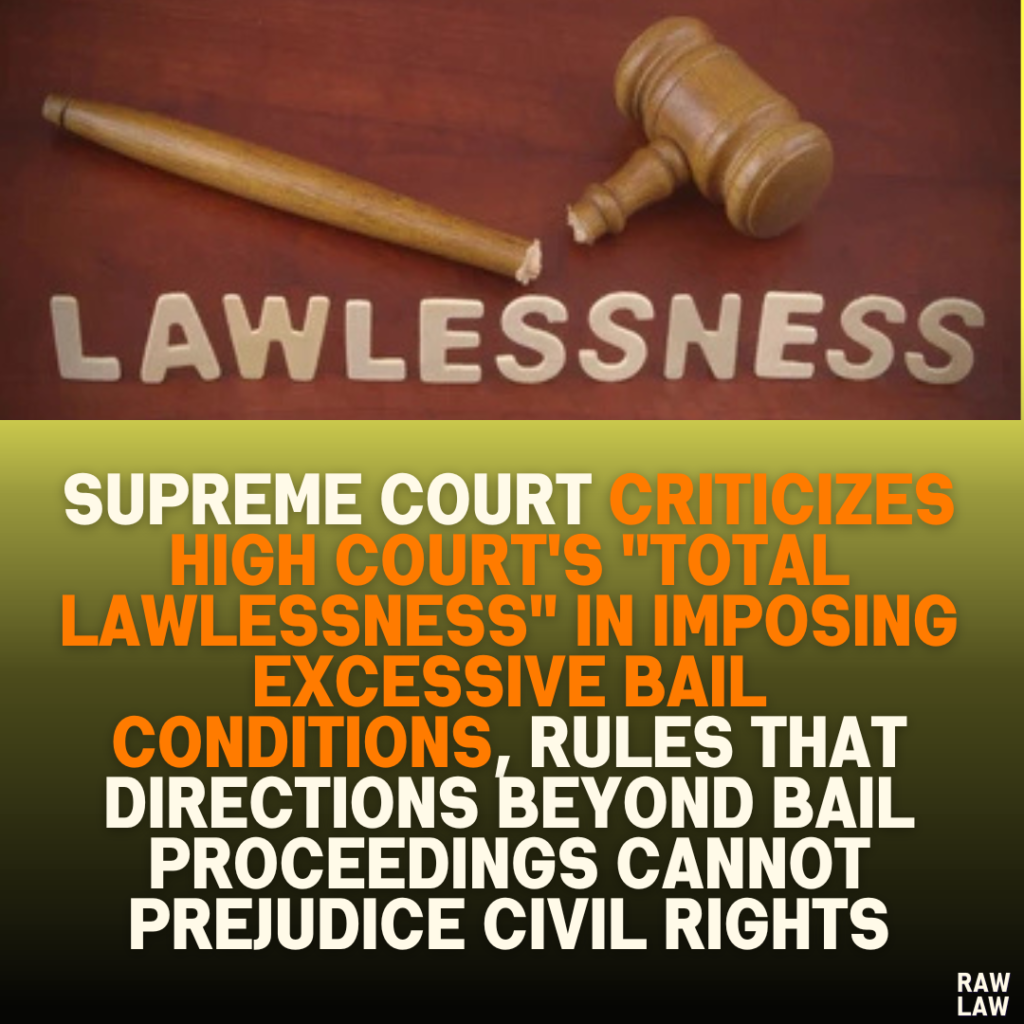Court’s Decision
The Supreme Court allowed the appeals, setting aside specific conditions imposed by the High Court in its bail order. The Court ruled that the High Court had exceeded its jurisdiction by imposing conditions unrelated to bail, such as requiring the appellants to remove a wall at their own expense and hand over property possession to the complainant. It emphasized that bail conditions must aim to ensure the accused’s presence in court and should not interfere with civil rights or ongoing civil suits.
Facts
The case originated from an FIR filed on April 22, 2024, in Madhya Pradesh, where the appellants were accused of forcibly entering the complainant’s property, breaking a wall, and assaulting his family. Following their arrest, their first bail application was withdrawn with permission to reapply post-charge sheet filing. The appellants filed a second bail application, which the High Court granted with strict conditions, including the removal of a wall and handing over property possession to the complainant.
Issues
The main issue was whether the High Court had the jurisdiction to impose conditions that effectively impacted civil rights and exceeded the purpose of bail proceedings, which is primarily to ensure the presence of the accused during trial.
Petitioner’s Arguments
The appellants contended that the High Court’s conditions were excessive and beyond the scope of bail proceedings. They argued that the conditions imposed were unrelated to the bail’s intent and prejudiced an ongoing civil suit concerning the disputed property.
Respondent’s Arguments
The State and complainant argued that the High Court’s conditions were justified. The complainant’s counsel emphasized that the appellants had forcibly entered the registered owner’s property and caused injuries, warranting the stringent conditions imposed.
Analysis of the Law
The Supreme Court reiterated that the purpose of bail is to ensure an accused’s presence during trial, not to settle property disputes. The Court referenced earlier judgments, including Parvez Noordin Lokhandwalla v. State of Maharashtra and Sumit Mehta v. State (NCT of Delhi), underscoring that any condition imposed should be reasonable, directly related to ensuring the accused’s presence, and should not prejudice the rights of the accused or infringe on civil matters.
Precedent Analysis
The Court cited Dilip Singh v. State of Madhya Pradesh and Mahesh Chandra v. State of U.P., where it was emphasized that bail conditions must not encroach upon civil rights or act as a resolution for civil disputes. The Court reinforced that imposing such conditions oversteps judicial bounds in bail matters.
Court’s Reasoning
The Court found that the High Court’s direction to demolish the wall and hand over possession to the complainant affected civil rights unrelated to the bail proceedings’ intent. Such actions, the Court stated, reflected “total lawlessness” and could not be sanctioned under any provision of law. Thus, the High Court’s conditions were deemed onerous and excessive, warranting their removal.
Conclusion
The Supreme Court concluded that the High Court had overreached by imposing conditions that effectively resolved aspects of a civil dispute, which is beyond the purpose of bail conditions. It directed that the appellants remain on bail under the remaining conditions but without the disputed requirements involving property possession.
Implications
This ruling clarifies that courts should avoid imposing bail conditions that interfere with civil disputes or rights. The decision reinforces the limited scope of bail conditions, ensuring they remain within the bounds of ensuring an accused’s presence at trial without impacting ongoing civil matters.



